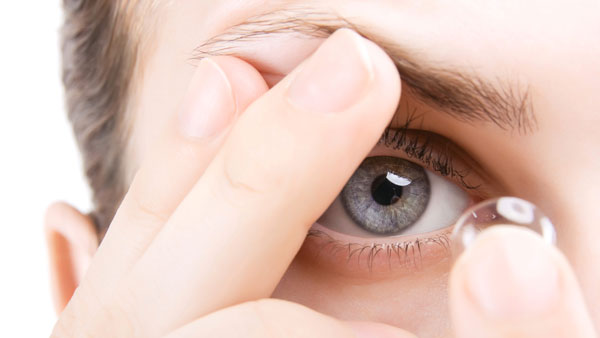Nutritional Profile of Grapes
Grapes are low in calories and high in essential nutrients, making them an excellent choice for those seeking to improve their diet without adding extra calories. A cup of grapes contains approximately 104 calories and is a good source of vitamins C and K, as well as several B vitamins such as thiamine, riboflavin, and B6. Vitamin C is crucial for maintaining a healthy immune system, skin health, and the absorption of iron. Vitamin K, on the other hand, plays a significant role in bone health and blood clotting.
Grapes, often referred to as “nature’s candy,” are not only delicious but also packed with a wide range of health benefits. These small, juicy fruits are rich in vitamins, minerals, antioxidants, and other essential nutrients that contribute to overall well-being. Whether enjoyed fresh, dried, or as juice, grapes offer numerous advantages that make them a valuable addition to any diet. In this article, we will explore the various health benefits of grapes and how their inclusion in your diet can complement treatments like Cenforce 200 and Fildena Double 200, which are commonly used for managing erectile dysfunction (ED).
Grapes are also rich in antioxidants, particularly flavonoids, resveratrol, and quercetin. These compounds help protect the body from oxidative stress by neutralizing free radicals, which can damage cells and lead to chronic diseases such as heart disease, cancer, and diabetes. Resveratrol, in particular, has been extensively studied for its anti-aging and anti-inflammatory properties, as well as its potential to promote heart health and longevity.
Grapes and Heart Health
One of the most notable benefits of grapes is their positive impact on heart health. The antioxidants found in grapes, especially resveratrol, have been shown to support cardiovascular health by reducing inflammation, lowering blood pressure, and improving cholesterol levels. Resveratrol also helps prevent the formation of blood clots, which can lead to heart attacks and strokes.
Research has shown that regular consumption of grapes or grape products, such as red wine, can lower the risk of heart disease and improve overall heart function. The fiber in grapes also contributes to heart health by lowering LDL (bad) cholesterol levels and promoting healthy blood circulation. By including grapes in your diet, you can protect your heart and reduce the risk of developing cardiovascular conditions.
Grapes and Brain Health
Grapes have been shown to support cognitive health and protect the brain from age-related decline. The antioxidants in grapes, particularly resveratrol, help reduce oxidative stress and inflammation in the brain, which are key contributors to neurodegenerative diseases such as Alzheimer’s and Parkinson’s. Studies have found that resveratrol can enhance memory, improve cognitive function, and even delay the onset of brain aging.
In addition to their antioxidant properties, grapes contain compounds that promote healthy blood flow to the brain, which is essential for maintaining cognitive function. Regular consumption of grapes can help protect the brain from damage and support mental clarity and focus as you age.
Grapes and Digestive Health
Grapes are a good source of dietary fiber, which is essential for maintaining a healthy digestive system. The fiber in grapes helps regulate bowel movements, prevent constipation, and promote the growth of beneficial gut bacteria. A healthy gut microbiome is linked to numerous aspects of health, including immune function, mood, and even weight management.
The polyphenols in grapes also play a role in protecting the digestive tract from inflammation and oxidative stress, reducing the risk of digestive disorders such as irritable bowel syndrome (IBS) and inflammatory bowel disease (IBD). By including grapes in your diet, you can support your digestive health and reduce the risk of digestive issues.
Grapes and Skin Health
Grapes are excellent for maintaining healthy skin, thanks to their high content of antioxidants and vitamin C. Vitamin C is essential for the production of collagen, a protein that keeps the skin firm, elastic, and youthful. The antioxidants in grapes protect the skin from damage caused by UV rays and environmental pollutants, reducing the risk of skin aging and skin cancer.
Resveratrol, in particular, has been shown to have anti-aging effects on the skin, helping to reduce the appearance of wrinkles, fine lines, and age spots. Including grapes in your diet can provide natural protection against premature aging and promote a healthy, radiant complexion.
Grapes and Weight Management
Grapes are low in calories and high in water content, making them a satisfying and nutritious snack for those looking to manage their weight. The fiber in grapes helps increase feelings of fullness, reducing overall calorie intake and supporting weight loss efforts. The natural sweetness of grapes can satisfy sugar cravings, helping you avoid less healthy snack options.
Research has also shown that the polyphenols in grapes may help prevent the accumulation of fat cells in the body and improve insulin sensitivity. These effects make grapes a valuable addition to a weight management plan, helping you achieve and maintain a healthy weight.
Grapes: A Holistic Approach to Health
For men dealing with erectile dysfunction (ED), maintaining overall health is crucial for enhancing the effectiveness of treatments like Vidalista and Fildena. The antioxidants and cardiovascular benefits of grapes can support blood flow, which is essential for sexual health. Improved circulation and reduced inflammation can complement the vasodilatory effects of Vidalista and Fildena, which work by increasing blood flow to the penis to facilitate an erection.
Moreover, the mood-boosting properties of grapes, due to their impact on brain health, can help alleviate stress and anxiety, common contributors to ED. By incorporating grapes into your daily diet, you’re not only supporting your general well-being but also enhancing the effectiveness of medications like Vidalista and Fildena in managing erectile dysfunction.
Conclusion
Grapes are a delicious and nutritious fruit that offers a wide range of health benefits, from supporting heart and brain health to promoting digestive and skin health. For men managing erectile dysfunction, including grapes in a balanced diet can complement the effects of medications like Vidalista and Fildena, providing a natural boost to both physical and sexual health. Embrace the power of grapes in your daily routine and enjoy the numerous benefits they bring to your life.





